Hundreds of pagers explode in Lebanon, injuring Hezbollah members
New details have emerged about the massive attack on the terrorist group Hezbollah, orchestrated by Israel, that has left thousands injured.
Israel has reportedly orchestrated a massive attack on the militant group Hezbollah, hiding explosive material within pagers used by the group and then blowing them up en masse, US officials have said.
The alleged Israeli operation, conducted on Tuesday local time, involved hiding explosive material within a new batch of Taiwanese-made pagers that had been imported into Lebanon, The New York Times reports, citing multiple American officials.
The pagers had reportedly been tampered with before they reached Lebanon.
The explosive material, in very small quantities, was implanted next to the battery in each pager, along with a switch that could be triggered remotely.
At 3.30pm in Lebanon, the pagers received a message that seemed to come from Hezbollah's leaders. Instead, the message activated the explosives.
Eleven people were killed and more than 2800 have been injured. Among the wounded, about 400 are reported to be in a critical condition.
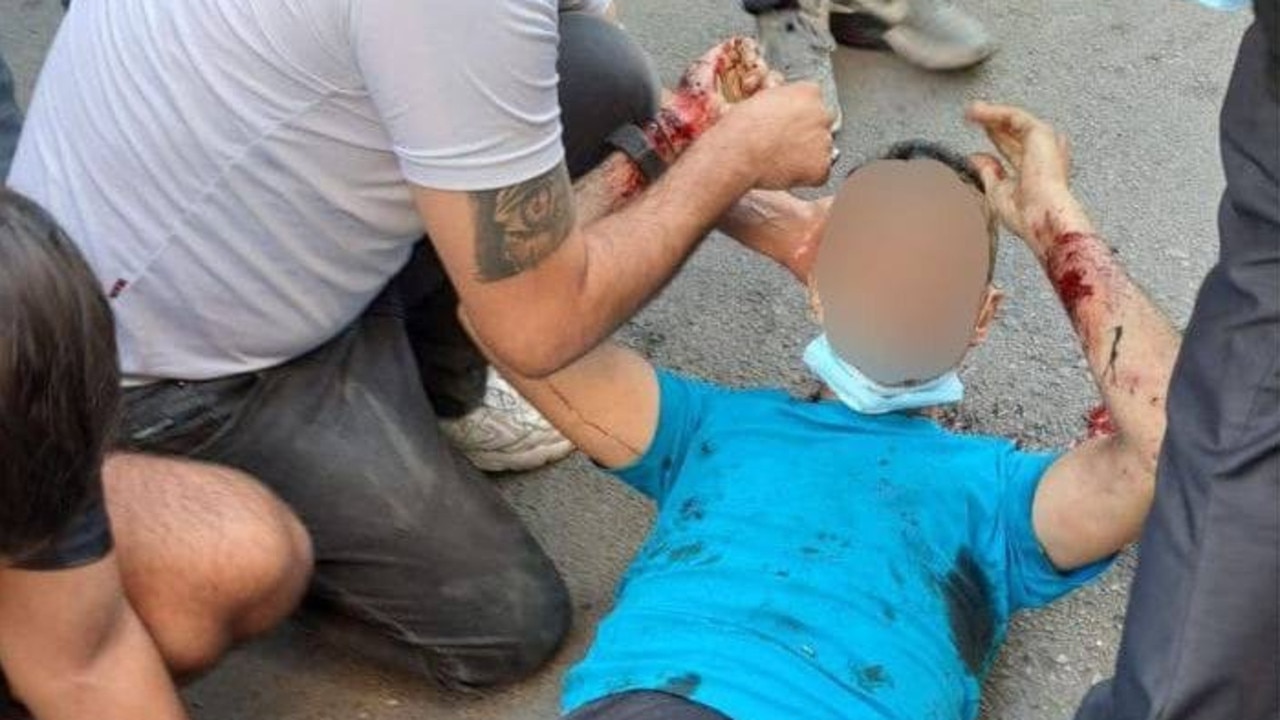
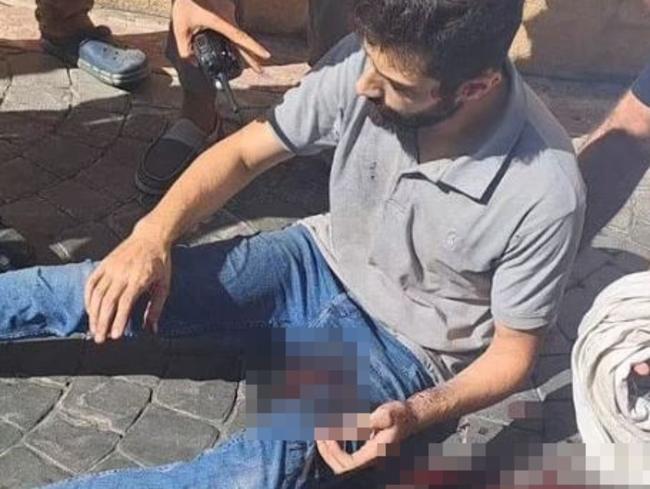
Hezbollah, a political party and paramilitary group classified as a terrorist organisation by a long list of countries, including Australia, the United States and United Kingdom, blamed the blasts on Israel, whose military has yet to comment.
The Lebanese Public Health Minister, Firass Abiad, argued Israel was the “obvious culprit” during an interview with the BBC.
Mr Abiad, who said most of the injuries “appear to be to the face and especially to the eyes, and also the hand”, alleged the exploding pagers marked a “major escalation at a time when everybody was hoping that things were moving to a kind of cessation of hostilities”.
"There is a lot of anticipation in Lebanon as people are waiting to see how Hezbollah is going to retaliate to this vast attack," said Al Jazeera's Ali Hashem.
"It's maybe the first time in history, of the confrontation between Hezbollah and Israel, that Lebanon has seen such an attack. People were exploding in the streets.
"Of course, in the past, people saw drone attacks, warplane attacks, huge explosions, but this is the first time that such devices are exploding with people (holding them). This is a matter of concern to many people."
There was no swift comment from the Israeli military on the blasts, which came hours after Benjamin Netanyahu’s government announced it was broadening the aims of its ongoing war against Hamas.
That war started with Hamas’s surprise attack on southern Israel on October 7 last year, during which militants murdered and kidnapped civilians.
The attack was followed by an extensive, and continuing, Israeli campaign in the Gaza Strip, which has killed about 40,000 Palestinians, according to the Hamas-run health ministry.
Tensions between Israel and Hezbollah, which is backed by the Iranian government, have been simmering for months, with repeated strikes from both sides across the Lebanese border.
Hezbollah reverted to the use of pagers, as opposed to phones, because it believed they would be more secure, according to a former Israeli intelligence official.
“In one sweeping attack, with both significant operational and pscyhological ramifications, these very low-tech devices were used against them and very possibly (deepened) the stress and embarrassment of its leaders,” Avi Melamed, told the UK Telegraph.
Among the dead from the exploding pagers today, whose origin is still yet to be confirmed, are the son of a politician and the 10-year-old daughter of another Hezbollah member.
A source close to Hezbollah, and the girl’s family, told AFP she was killed when her father’s pager exploded while she was standing next to it.

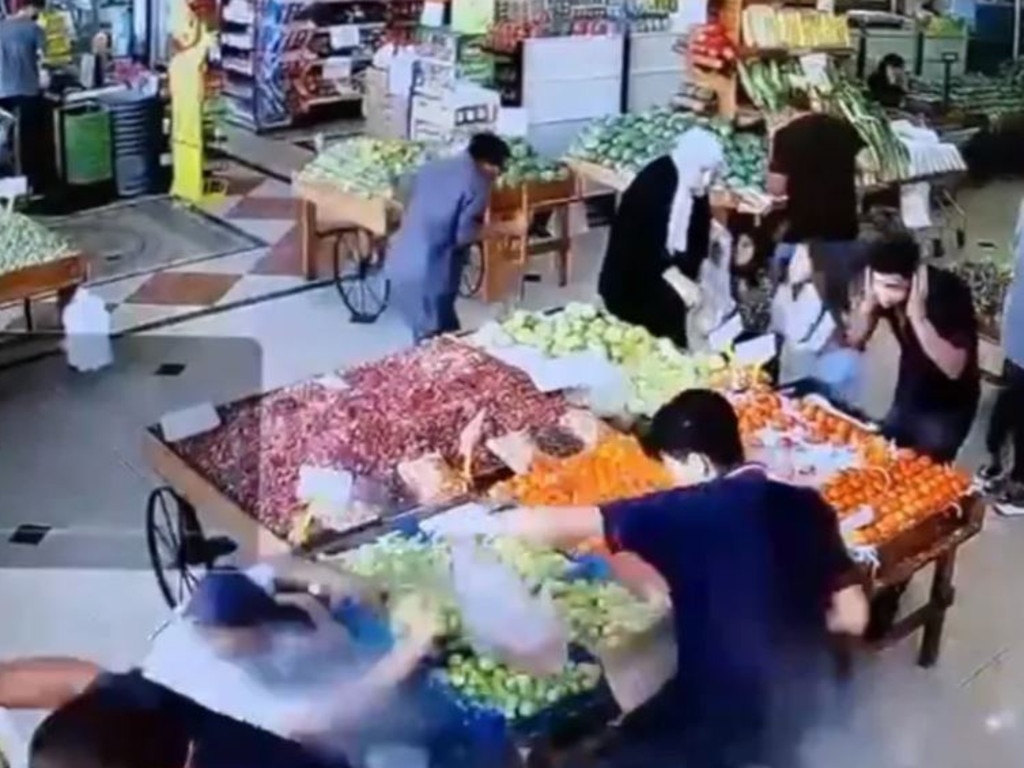
Hezbollah has reacted by warning that Israel will be punished.
“We hold the Israeli enemy fully responsible for this criminal aggression,” the terrorist group said in a statement, adding that Israel “will certainly receive its just punishment for this sinful aggression”.
Iranian state television reported that Tehran’s ambassador in Beirut, Mojtaba Amani, suffered “superficial” injuries in one of the explosions.
The afternoon blasts hit several Hezbollah strongholds across Lebanon, in the first such incident since the group began trading near-daily fire with Israel.
“Hundreds of Hezbollah members were injured by the simultaneous explosion of their pagers” in the group’s strongholds in Beirut’s southern suburbs, in south Lebanon and in the eastern Bekaa Valley, a Hezbollah source said.
AFP journalists saw dozens of wounded being rushed to hospital in Beirut and in the south, where dozens of ambulances rushed between the cities of Tyre and Sidon in both directions.
A representative for the United Nations, Lebanon special co-ordinator Jeanine Hennis-Plasschaert, warned that the explosions were “an extremely concerning escalation in what is an already unacceptably volatile” conflict.
She urged “all concerned actors to refrain from any further action, or bellicose rhetoric, which could trigger a wider conflagration”.
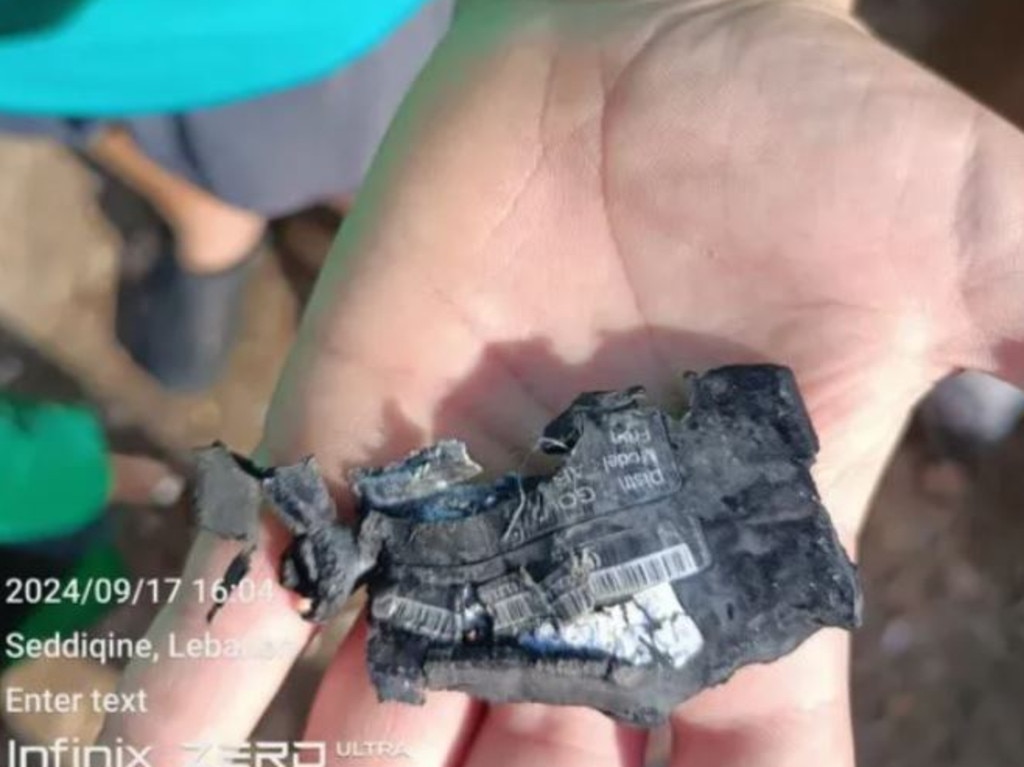
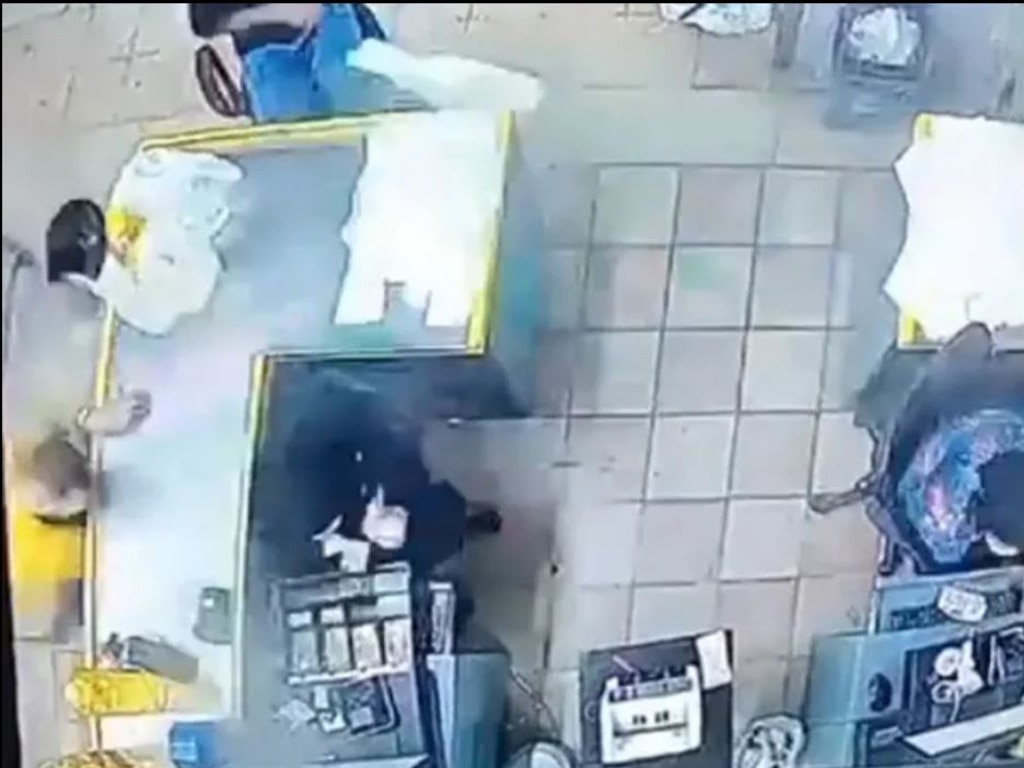
Earlier on Tuesday, Israel announced it was broadening the aims of the war sparked by the Hamas attacks to include its fight against Hezbollah along the border with Lebanon.
To date, Israel’s objectives have been to crush Hamas and bring home the hostages seized by Palestinian militants during the October 7 attacks that sparked the war.
“The political-security cabinet updated the goals of the war this evening, so that they include the following section: the safe return of the residents of the north to their homes,” Israeli Prime Minister Benjamin Netanyahu’s office said in a statement.
Since October, the unabating exchanges of fire between Israeli troops and Hamas ally Hezbollah in Lebanon have forced tens of thousands of people on both sides of the border to flee their homes Not formally declared as a war, the exchanges of fire between Israeli troops and Hezbollah have killed hundreds of mostly fighters in Lebanon, and dozens on the Israeli side.
Hezbollah had instructed its members to avoid mobile phones after the Gaza war began and to rely instead on its own telecommunications system to prevent Israeli breaches.
On Monday, Israeli Defence Minister Yoav Gallant warned that failing a political solution, “military action” would be “the only way left to ensure the return of Israel’s northern communities”.
Hezbollah, which like Hamas is backed by Israel’s regional arch-foe Iran, claimed a dozen attacks on Israeli positions on Monday and three more on Tuesday.
Before the wave of pager explosions, Israel said it had killed three Hezbollah members in a strike on Lebanon.
‘Fundamental change’
“The possibility for an agreement is running out as Hezbollah continues to tie itself to Hamas,” Gallant’s office quoted him as telling visiting US envoy Amos Hochstein.
Netanyahu later told Hochstein he was seeking a “fundamental change” in the security situation on Israel’s northern border.
Hezbollah deputy chief Naim Qassem said at the weekend that his group had “no intention of going to war”, but that “there will be large losses on both sides” in the event of all-out conflict.
“Without a ceasefire in Gaza, there will be no agreement on the question of the border with Lebanon,” said Michael Horowitz, of the Le Beck International security consultancy.
Israel’s aim in expanding the war would be to “create a ‘buffer zone’ in southern Lebanon”, Horowitz added.
Hamas, meanwhile, said it was readying for more war, with assistance from fighters and support from across the region.
In a letter to the group’s Yemeni allies, the Iran-backed Huthi rebels, Hamas chief Yahya Sinwar said: “We have prepared ourselves to fight a long war of attrition.” “Our combined efforts with you... will break this enemy and inflict defeat on it”, Sinwar said.
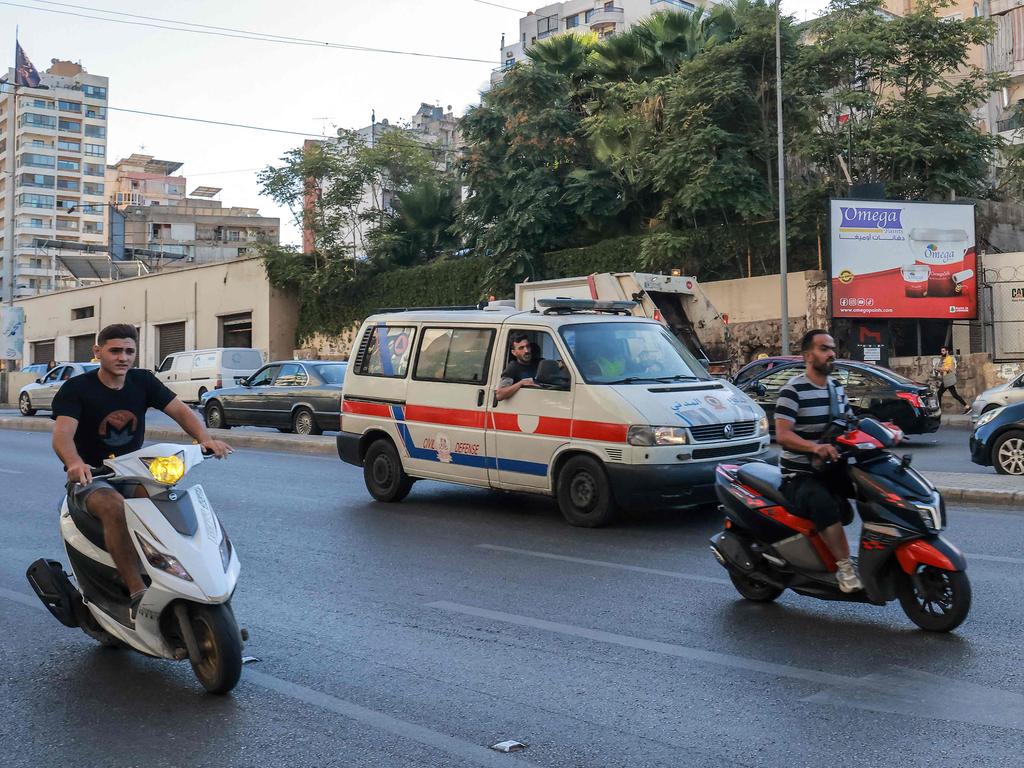
Blinken in Egypt
US Secretary of State Antony Blinken was due back in the region to try to revive stalled ceasefire talks for the Israel-Hamas war in Gaza.
After months of mediated negotiations failed to pin down a ceasefire, Washington said it was still pushing all sides to finalise an agreement.
US State Department spokesman Matthew Miller said Blinken would discuss during a visit to Egypt “ongoing efforts to reach a ceasefire in Gaza that secures the release of all hostages, alleviates the suffering of the Palestinian people, and helps establish broader regional security”.
US officials have expressed increasing frustration with Israel as Netanyahu has publicly rejected US assessments that a deal is nearly complete and has insisted on an Israeli military presence on the Egypt-Gaza border.
Mounting pressure has failed to sway him to agree to a hostage release deal that has wide support from the Israeli public.
‘Everything that was beautiful’
The October 7 attack on southern Israel that sparked the war resulted in the deaths of 1,205 people, mostly civilians, according to an AFP tally based on official Israeli figures.
Militants also seized 251 hostages, 97 of whom are still held in Gaza, including 33 the Israeli military says are dead.
Israel’s retaliatory military offensive has killed at least 41,252 people in Gaza, according to the Hamas-run territory’s health ministry, which does not provide a breakdown of civilian and militant deaths.
On Tuesday, UN member states will debate a draft resolution demanding an end to the Israeli occupation of all Palestinian territories within 12 months.
General Assembly resolutions are not binding, but Israel has already denounced the new text as “disgraceful”.
In Gaza, rescuers said several Israeli air strikes killed at least seven people overnight.
- with AFP




